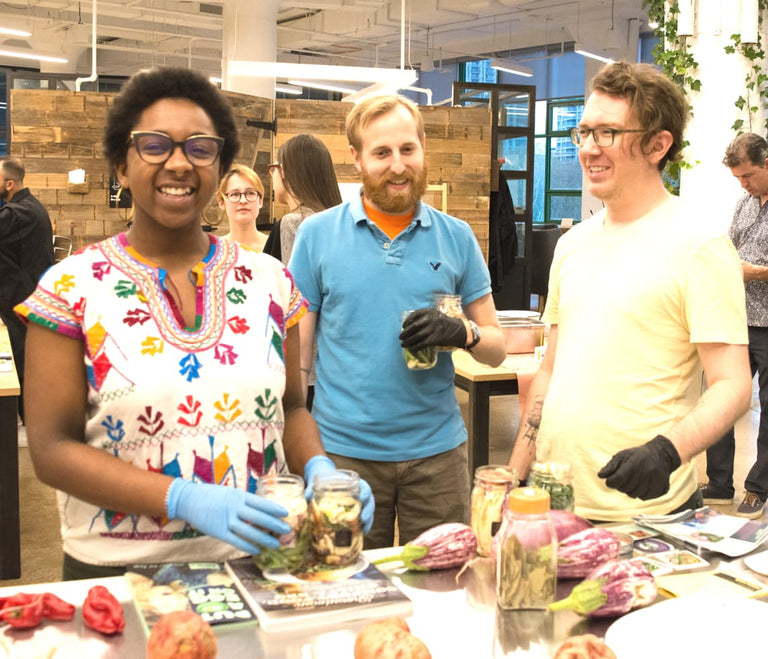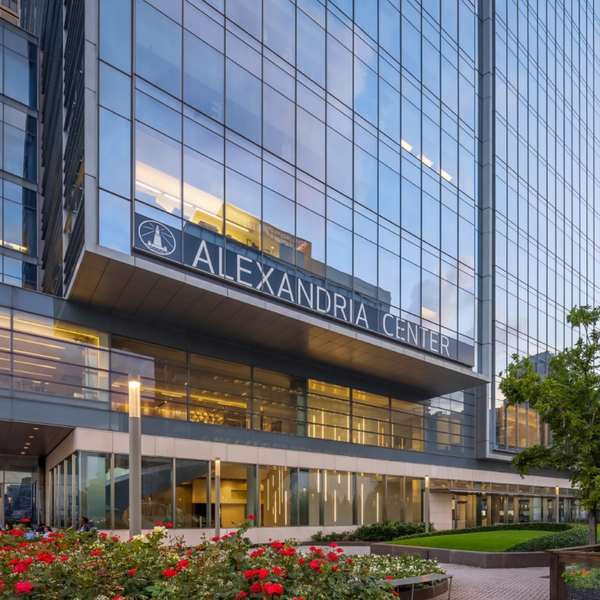Talking Regenerative Grazing with Acabonac Farm’s Stephen Skrenta
Agriculture is one of the world’s biggest contributors to climate change, the vast majority of which come from industrial meat and dairy production. Cows in particular are the most carbon-intensive part of the food industry, making up 62% of agricultural emissions. While reducing meat consumption is essential to curbing climate change in the long term, supporting livestock farmers that practice regenerative agriculture is key to supporting a healthy ecosystem. We believe that cows fight climate change. Allowing cattle to graze on open pasture for their entire lives can restore soil microbial diversity, thereby making the land more resilient to flooding and droughts, boost nutrient content and flavor of the animal and plants, and trap atmospheric carbon dioxide in grasslands.
We recently interviewed one of our beef farmers, Stephen Skrenta, founder of Acabonac Farms, to learn more about regenerative grazing, soil health, and the future of local beef. Acabonac Farms raises cattle on open pasture on the East End of Long Island. While Long Island might not come to mind when you think cattle farming, cows have been grazing the land for over 350 years. In the summer, the herd grazes on 150 acres of pasture, and in the winter, they are fed high-quality hay. Stephen keeps his cattle on Long Island year-round, whereas in previous years they would spend winters in Upstate NY. Now, thanks to the help of a moveable water system, he can keep his cattle at home and provide water for them, even in the coldest winter days.

There’s a 350 year history of farming in your region. Is there still a robust farming community on the East End of Long Island?
Well, it’s small. It’s the largest agricultural county in New York, but that’s based on dollar amount, so our prices are high and that’s why we’re at the top. Agriculture is vanishing [out here] because it is more expensive to farm in an urban area and traditional commodity crops are not profitable in this setting. Growing a crop like corn or other commodities won’t work because the prices for them don’t support the production in this area. People can’t make it with those crops anymore.
Value-added products are also growing a lot as a way to increase farming profitability.
Absolutely. If I were to make beef into beef jerky, that would help the business of the farm as well. So continuing to add value or added value through retail is really important to the industry.
How has climate change affected your farm or business?
Fundamentally, everyone should be concerned about global warming on all levels. Eastern Long Island has sandy soil which means that when it does rain, that moisture is not held in the soil and runs right through it. Each year, July and August are getting hotter which is a major concern because we don’t irrigate our pastures, so moisture is not an option. It could be with significant investment, but the economics of this business don’t support that. If we continue to have more hot and dry summers like the one we had this year, it’s going to be very difficult for agriculture.
Acabonac Farms is big on regenerative grazing practices. Can you talk a little about that and what made you decide to do that type of farming, what kind of benefits you’ve seen and what you’re hoping to get from that technique?
Well, regenerative farming in my mind, is taking traditionally farmed land and returning health to the soil and then engaging in practices that support soil health and growing it. Every bit of carbon that we can have in our soil gives us a fighting chance against things like drought. We don’t subscribe to synthetic fertilizers, so unless the soil health is providing the nutrients needed for the forage we’re growing, we’re not going to grow another forage. So if we’re engaging in farming practices that discourage soil health, that’s just going to make our business weaker. From my perspective, it’s good for the environment but it’s also good for business. We also don’t invest in a ton of tractors and farming equipment that immediately depreciates, and that’s an indicator of soil health. We don’t need all of that because of our practices. We can farm 200 acres with one person. Over time, we hope this will make our business more resilient against drought and pests and make us more profitable.

There have been a lot of discussions in recent years about cows and climate change, discouraging consumers from eating red meat or going plant-based because cattle farming is bad for the environment. What are your thoughts on these debates?
I read articles about how methane emissions from cows are causing global warming, or articles that are peer reviewed by scientists that say that if you use the right farming practices to build soil health and sequester carbon, certain models such as the one we’re using can actually reduce greenhouse gases. I think it’s important that we respect both sides of the argument and really listen because I doubt there’s one right answer. I will say that there are natural systems that have been in place for thousands of years such as grazing animals that are moving and eliminate negative impacts over time. Nature has a way of balancing itself out to remove systems that are harmful to the earth which generally creates natural systems that are optimal for environmental health. If we are able to mimic those natural occurrences, to the extent that they resemble what has happened in nature for centuries, I think that’s probably in everyone’s best interest from an environmental and health perspective. I’m not suggesting that we understand everything – but for me, I don’t really know how you argue with that [natural system]... you can take a sample of my beef and compare it to conventionally farmed beef in a supermarket and you can clearly see a difference in quality in the end product as well.
It’s also a matter of scaling. An operation like your farm is responsible and manageable where factory farming is more the issue here than a small farmer who cares about the land and cares about the animals.
Just for me, I don’t know how you scale something up [like factory farming] that is damaging our health and damaging our environment and say that it is scalable. That’s not scalable. You’re not doing something good. My team (of one) looks at me and asks why don’t we lease more land and I say why? We can triple, or quadruple even, our productivity on these existing acres by just continuing to improve soil health. We can do so much more without having to have more land. I would argue that there is definitely not enough room for more conventional pig farming for instance, but there is definitely more room for places like Acabonac Farms.
Do you have any thoughts on the growing movement of lab grown meats?
I think that there’s room for lots of different products, like plant-based protein or lab-grown meats. There’s going to be pluses and minuses to all of these systems and people will have to continue to make choices for their own bodies. My thought is that our bodies can handle change because we’re good at adapting. My sense is that there will be a period of time where these alternative proteins may cause our bodies to struggle and we don’t know the unintended consequences of that. I’m sure there is room for investing in these, but for me, what I spend my time on is how Americans increasingly want to know what the ingredients are. I focus on what it is I put into my beef and what it will do to the people who eat it. And I don’t dismiss these new systems because not everyone can afford premium products and you don’t know anyone’s circumstances.
Try Stephen’s pasture raised meat with our Premium Meat Seasonal Subscription. If you’d like to know more about how cows are fighting climate change, check out our article here.
Interview and article by Local Roots NYC volunteer, Jessica Schwartz.
Rather have a taste first?
Local Roots Experiences are fun, pop-up events where we bring the farm to you!

Become a Harvest Club Pick Up Location
Are you a NY based cafe, bar, or neighborhood business? Become a Harvest Club pick up location and have community members come to your establishment each week to pick up their Local Roots harvest.
Top






